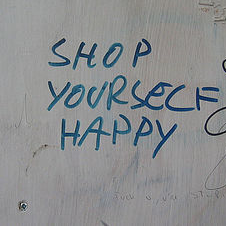How to Fight Authority (and Win)
“I fight authority; authority always wins.” –John Mellencamp
Citizens, consumers, and rebels of all kinds have been fighting authority for as long as history has been recorded. Sometimes they lose, as John Mellencamp sang in a great rock song, but other times, the underdog manages to unseat the strong and mighty.
I should say from the beginning that I don’t necessarily think all authority is bad. I’m in favor of gentle government regulation, general law and order, and checks and balances that prevent abuse of power by anyone. For this, you need authority. Anarchy is not a useful system of governance anywhere.
But sometimes, authority is dangerous and outright harmful. In these cases, it should be resisted in full force. Other times, authority may not be that bad, but it is used to prevent you from doing something that would be good for you without being harmful to anyone else.
In many of these cases, it’s worth it to stand up to authority… but you need a strategy.
From authority wielded by college administrators to world dictators, here’s how you fight it.
First, count the cost.
Be convinced you’re in the right before taking action. Fighting authority can be a long and lonely road, so take the time to make sure you believe in your campaign enough to sacrifice for it. (Yes, there will usually be sacrifice, and we’ll come back to that in a minute.)
Second, count the rewards.
Because the cost can be great, you have to decide if it’s worth it to you to challenge deep-seated authority. What will happen if you win? How will your world – and hopefully more than just your own world – be different?
In the Civil Rights Movement, for example, the reward of equality was clearly worth fighting for, but it was only fully achieved for a future generation – the children and grandchildren of the movement’s participants. Regardless, the participants believed in their cause so much that they were willing to suffer for something that would not be fully realized right away.
Other challenges to authority may not have the same level of rewards as an entire social movement, but there will always be a relationship between cost and rewards. Since you can only fight so many battles at a time you might as well pick something important.
Then, decide on Direct vs. Indirect confrontation.
One decision you’ll have to make when fighting authority is whether to do it directly or indirectly. The indirect way will usually be easier. You may be able to get what you want by simply going around the authority and finding your own way.
Direct confrontation is another beast altogether. Fighting authority one-on-one can lead to bloodshed – or at least hours on hold with customer service – but sometimes, there’s no other way.
To help you make the decision, first answer these two questions:
#1: “Is there another way to do this?”
When you’re confronted with authority that tries to prevent you from achieving your goals, think about whether there is any other way you can do what you need to do.
For example, there is usually another way to graduate from college, another way to earn a living, another way to get the airline to waive the baggage fee, another way to get a visa to Pakistan, or almost anything else.
Again, count the cost and count the rewards. If the traditional path isn’t that difficult, save your authority-fighting for something more important.
#2: “Can I simply ignore the authority standing in my way?”
Direct confrontation can be dangerous, because authority does not like to be challenged. Sometimes you can simply ignore authority and go through the back door.
In most of the African countries I lived in from 2002-2006, the government was relatively weak. Most citizens paid no taxes and lived nearly all their life outside the realm of the law. Disputes were resolved personally or by small, informal authority figures such as tribal elders.
If the citizens in most of these countries were to directly confront the government, the government would put up a fierce fight to put them down. No expense would be spared, and the fight would be brutal since no one likes to give up their power. But if the citizens were to just live their lives without challenging authority, the dictators (often benevolent, sometimes not) who ran the country would look the other way when the people chose to ignore many of the laws.
(In this system, citizens receive few benefits from the state, such as law and order, legal protection, and recognized home ownership, so it’s not necessarily a good way to live – but that’s another story.)
Next Stop, Sacrifice
A fundamental principle of lifestyle design is that you can usually have anything you want if you’re willing to work for it, but you can’t have everything. Tradeoffs must be made, and if you’re fighting authority, you may lose time, status, sleep, money, or worse. The bigger the challenge, the higher the risk of great sacrifice. Consider yourself warned.
***
Successful Challenges to Authority
Let’s look at two examples of successful (but quite different) challenges to authority: the American Revolution, and the rise of online resistance to the mega-corporation.
The Pursuit of Happiness
“I have no fear that the result of our experiment will be that men may be trusted to govern themselves without a master.” –Thomas Jefferson
The American Revolution was remarkable in that it changed the norms of government for most of the Western world. Until America declared independence from the British Monarchy, most people took it for granted that a king would always be around to tell them what to do.
Just a few years later, the French Revolution followed the American one. In a short time, two of the world’s most powerful monarchies were dismantled or permanently weakened. Every world democracy, especially those who have overthrown monarchies or dictators to install a system of self-governance, owes a debt to the instigators and sustainers of the American Revolution.
Later, the Civil Rights Movement (CRM) followed the path of these revolutions by exposing the great conflict in American society: that even though “all men were created equal,” until the CRM, some were more equal than others.
***
Challenges to authority need not be governmental in nature. Consider the popular site The Consumerist. This is a great example of how the internet and adoption of social media has helped underdogs (consumers) fight authority (corporations).
For a long time, consumers who had somehow been cheated by corporations had few places to turn to for assistance. Sure, advocates like Ralph Nader helped us get seat belts and deal with major injustice, and perhaps the local news station’s investigative reporter could help once in a while, but for the most part, consumers were left to suffer the perceived injustice on their own.
Not so now. When a company like Best Buy screws someone over (judging from the site, it appears that Best Buy is a frequent target), the Consumerist posts up all the details. Thousands of people read it within minutes… and so does the company, because they are finally beginning to understand the destructive power of negative P.R.
In contrast to their preferred methods of communication, corporations have been forced to respond to many consumer complaints posted on the site. They do not always give in, but accountability has been introduced to the marketplace because of sites like the Consumerist.
Wrap-Up
I’ll have more to say about authority later, because this is a big topic… but for now, what do you think? What are some other examples of authority being successfully (or unsuccessfully) challenged?
###
P.S. A quick note to everyone in Canada who is reading today — Happy Thanksgiving!
I hope you guys are enjoying your holiday. There is no need to fight authority up there at the moment, unless someone tries to take your pumpkin pie.
Did you enjoy this article? Please pass it on to others at StumbleUpon, or share your own thoughts in the comments section.
Image from Copenhagen, Denmark by ilmungo











16 Comments
I think challenges to authority can be good, but it does depend on how you do it, you just need to be careful about how you start to challenge it at first, don’t come on too strong at the start.
My biggest fight was with the mayor of Spokane, Wa., “Queen Vicky”. It was over building a trash burner up wind of the city. This was her solution to “recycling”. She worked out at the same gym I did so I had a special Queen Vicky t shirt made to annoy her. I made sure I worked out at her regular time. She smiled or was it a sneer? I found it very satisfying.
I also spoke my objections at locally televised TV, but to no avail. When the wind blows toward town, as it often does, you enjoy the full benefit of the smoke.
As a budding social worker, dealing with/opposing/fighting/avoiding authority is probably one of my biggest challenges. Of course, I also (sadly) get to BE the authority. I get both sides of it. I look forward to seeing what more you have to say about it.
In reading this post, I think about one of the times that I should have fought authority in my education and wish I had done more.
And thanks for the Thanksgiving wishes. It was a good meal. 🙂
Good post. As a site devoted to non-conformity, I wondered where this post was.
There’s a also a post at The Art of Manliness that addresses involvement in organizations (it applies to women as well).
Some readers here might be interested in it. It’s somewhat the opposite of this post, but it also talks about how going against the grain within organizations is sometimes better than leaving altogether.
Some interesting ideas. Check it out.
Fourteen years ago, on a very cold night in February, in des moines, Iowa, i was arrested for dancing after 2am. Well, not literally for dancing after 2am. I was arrested for pushing on a door that was being blocked by an undercover officer whose uniformed partners were roughing up a friend of mine, the promoter who blatantly scheduled a non-drinking event to run beyond the 2am dancing curfew in the capital city of iowa.
We went to court, listened to police officers lie on the stand, were found guilty by a jury… and received suspended sentences by the judge. Dancing after 2am is still against the law in des moines, i believe. Can’t say for sure. My friend moved to san francisco, where you can dance whenever you want. usually. I moved to boston and have no idea if we have any dancing ordinances that are unrelated to alcohol. I doubt it.
The moral? Judges can be wise after all. and authorities quite often contribute to brain-drain.
Thanks for the post! This may have turned out different if i’d had some better gui-dance at the time.
I believe in some authority. What if there is something about what people say that is right? On the other hand, you have the freedom to create your own way of doing things. Authority seems a problem when people take advantage of it, or use it unwisely. Its healthy to question authority, it seems, but rebelling against it isn’t always useful.. Nobody knows everything, but some people know what works. Who is to trust?
When I came back to my home university after one semester of studying abroad I had many difficulties with the administration but finally got a permission to stay in a student dormitory untill the end of February. Then one beautiful January Wednesday I got a handwritten note that I have to leave the room until Friday because I’ve interrupted my studies which was not true. After writing a complaint, collecting a hundred different documents and waiting over a month I finally got their decision which was that I’m right and I can stay in the room until the end of March (go figure – I only wanted to stay until end of February and noone ever mentioned March). When you know your rights you need to fight for them.
My opinion is that authority is over-used and some (if not most) authrotiy figures need to be put in their place. If they go unchecked, they will continue with their behavior. I always saw it as my job to check authority, whether right or wrong.
Call it what you want – but if you let authority get away with pushing his or her way around, they will. If you give others power, they gladly take it and your the one left wondering where your integrity went. Check them…I used to be the nice guy when I was younger (mostly to protect myself)…now I’m 6’4 280 lbs and the boundaries I set with authority come with an unwritten consequences…you gotta use what you got in this world. Sad but true.
For 3 years now our life has been turned upside down because of an abusive power hungry public servant in the Deschutes National Forest Bend, Oregon. These people are given much to much power. He decided to deny my special use permit we had obtained for 26 years so that horseback riders could come ride in the beautiful forest on existing roads and trails we host on our ranch that is surrounded by NF. He says I cannot have a permit unless I agree to make riders stay on roads dedicated a vehicle use. This is insane and I could never allow that to happen….we live to host those rides and our life at 71 has ended with the loss of this permit………yes he is wrong and the constitution protects us from such abuse but unfortunately only those who are wealthy can get to the Supreme court as the public Servants are protected and carry out their savage abuse on a daily basis. He has hurt our small communities that need commerce and thousands of families that have been shut off their own land.
A dictatorship is not desirable nor is anarchy. So we have rules and laws to live by to help us get along the best we can. I can agree with that.
I do not promote going against authority for the shake of it. Often things are done for a reason, that you may not be aware. Keep some uncertainty about what you think in mind. If nothing else it gives you room to wiggle.
The type of authority that annoys me considerably are career bureaucrats who gained their position by agreeing with previous authorities that have passed on, literally and figuratively.
Typically these are low level managers, often without any qualifications of any standing, ombudsmen, commissions, and lawyers. A spineless bunch that stick together.
Go around them…. It is always possible, just because you or your friends have not thought of a way does not mean there is not a method. Just keep it to yourself. They will if you tell them use anything you do or say against you. You have the right to say as much or as little as you want.
They have nothing to offer themselves. In fact, these are the biggest risk to a society and public service than anyone else.
You can choose to leave them to fight, experience heart attacks, become drunks, do drugs, and die of cancer. You could not hurt them more than their own biology will.
Ignore them. Go about your harmless daily business and enjoy life.
Even though it is difficult, I think we have to understand the feelings of authority figures and their roles in society. Their jobs are idealized and they are seen as idols so they too often become arrogant. The power they have combined with their arrogance is toxic and dangerous. They are not emotionally mature enough to have authority. If they are approached with understanding in a peaceful manner I have found them to be cooperative for the most part. I think sometimes activists, like in protests, for example, make too much of a spectacle at times and this is provoking. We need a better system somehow. For example, instead of prison, why don’t we use therapy, etc. because I don’t believe people are completely evil. We are all (including authority figures) damaged in some way and anybody could lose control.
I was greatly influenced by Harry Browne’s “How I Found Freedom in a Unfree World.” browne advises against fighting City Hall. He says most laws/regulations etc. can simply be ignored, and with little consequence. Fly under the radar and you will probably discover just how much freedom you can have.
Hi blogger, i’ve been reading your page for some time and
I really like coming back here. I can see that you probably don’t make money on your blog.
I know one interesting method of earning money, I think you will like it.
Search google for: dracko’s tricks
Thank you so much for suggesting me this online card game platform i am so surprise and always ready to play https://myeuchre.com with my friends at this multiplayer Junction.
Top Deals of prime Shopping
Entertainment prime News Post
Your comments are welcome! Please be nice and use your real name.
If you have a website, include it in the website field (not in the text of the comment).
Want to see your photo in the comments? Visit Gravatar.com to get one.